"Basically, be boring" - Futurist Jim Carroll
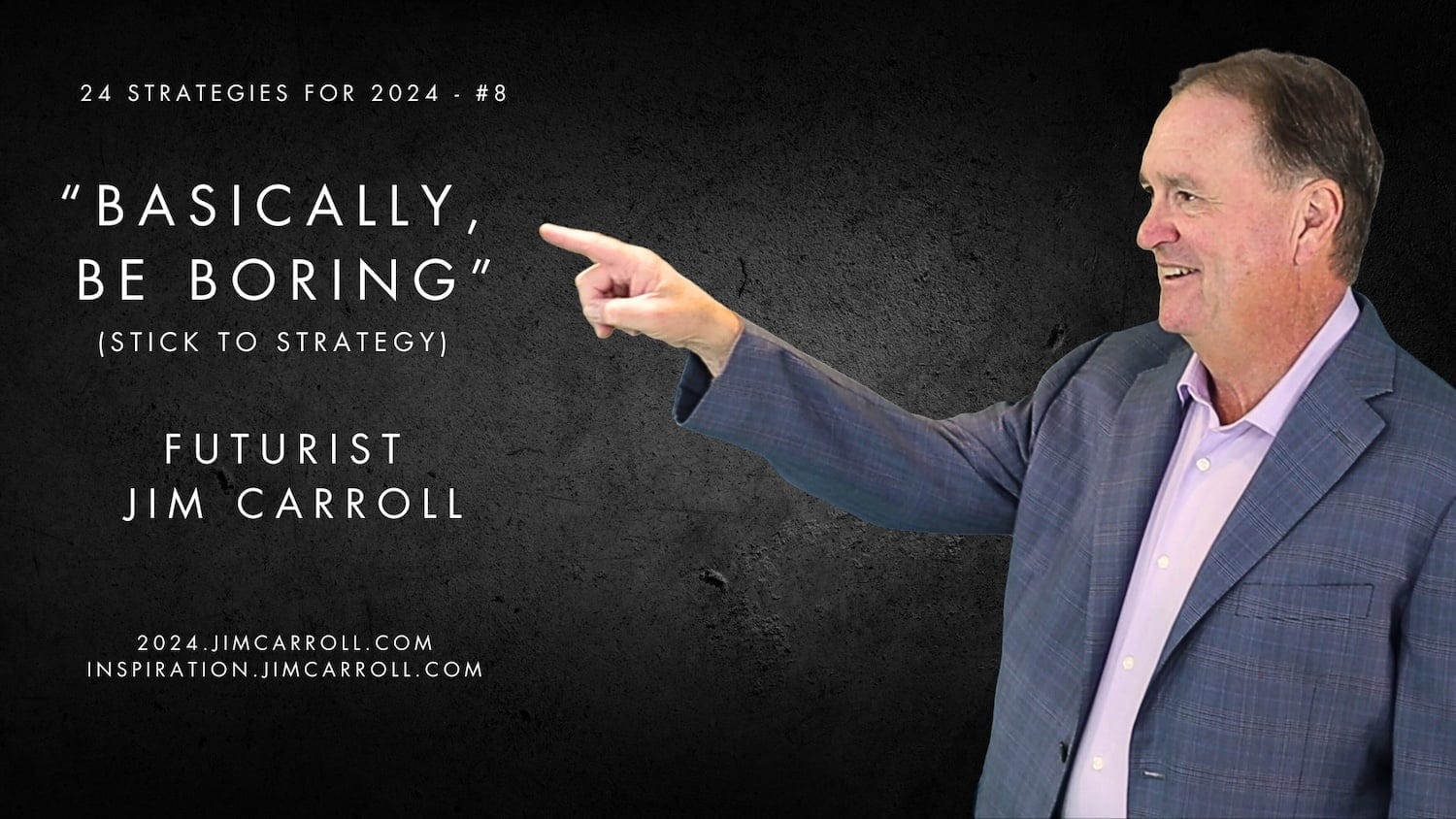
Futurist Jim Carroll is running a series that began November 27, 2023, and will end on January 1, 2024 - '24 Strategies for 2024.' Rather than running a trend series for the upcoming year as he has previously, this series will examine a number of his personal beliefs on how to best align yourself with the future. There will be a post each weekday, excluding weekends and holidays, until the series runs its course. You will find it on his blog at
or on the website
Sometimes, you need to be boring.
That time is right now. Boring is often better - you know, boring stuff like real business strategy.
Are you getting caught up in the hype, or the reality? Our world today is full of grandiose statements. "If your company doesn't have an AI strategy, it won't exist in 5 years." "If you don't adapt to AI at this very moment in time, your career will be at risk." "Millions of jobs are going to disappear in the next year because of AI."
This is all a bit of hogwash, and those of us who have been here before know better. We went through the early days of the Web, the arrival of the dot.com opportunities, the emergence of social media, and countless other trends. Every time, the hype machine geared up, people and companies were told that if they did not fully immerse themself in the trend right away, they were doomed.
Right.
We were boring because we told the truth - the future takes hard work.
So sorry, but let me be boring by going back to that boring thing - business strategy.
My operative phase with any new technology has long been that 'we tend to overestimate the rate of change on a two-year basis, and underestimate the rate of change on a ten-year basis.' That's what's happening right now with AI - something profound is happening, and yet, it is very early days - and if we don't stick to the strategy, it's pretty likely we'll go off the rails.
With that in mind, let me walk you through a series of slides I used in the latter part of my keynote yesterday for the East Penn Manufacturing Company. You've likely never heard of them - they like it that way. And yet, there is a good chance that the batteries that you use in your everyday life - in your car, lawn mower, or other small home, factory, or workplace machine were made by them. They're a pretty massive organization.
East Penn was hosting a two-day meeting of their entire leadership team - from Board members down through every functional department - and needed a realistic overview of what is going on with AI and manufacturing. Not the hype, not the extremely unrealistic promise, not the science-fiction crazy stuff. Real insight, real trends, real strategy. You know. the boring stuff - the type of stuff that would help them to ground both short-term actions and long-term strategies into realistic opportunities.
Somehow, they found me, and my AI for Leadership Teams overview caught their interest. It's drawing a lot of interest these days, actually, indicating a real need in the market.
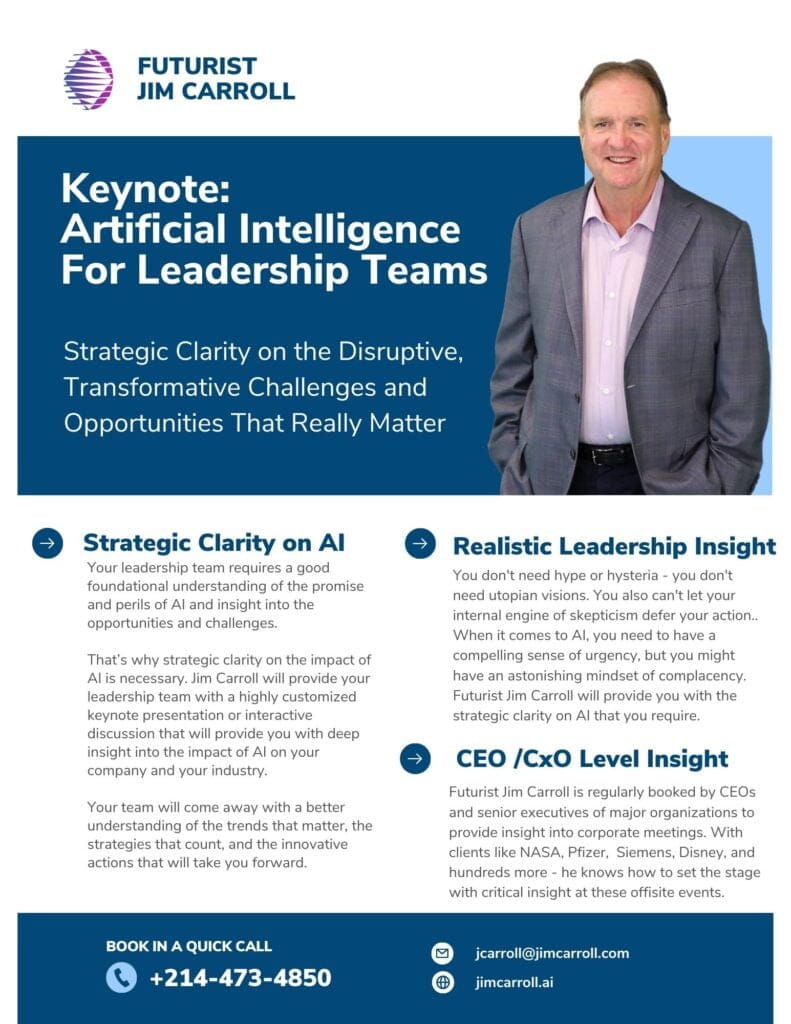
While my keynote was pretty darned exciting - I love a great stage! - some of the insight I offered to them consisted of this 'boring' business stately stuff. You know, business strategy.

And that made me realize that this is a key strategy we should take with us into 2024. We should be more boring!
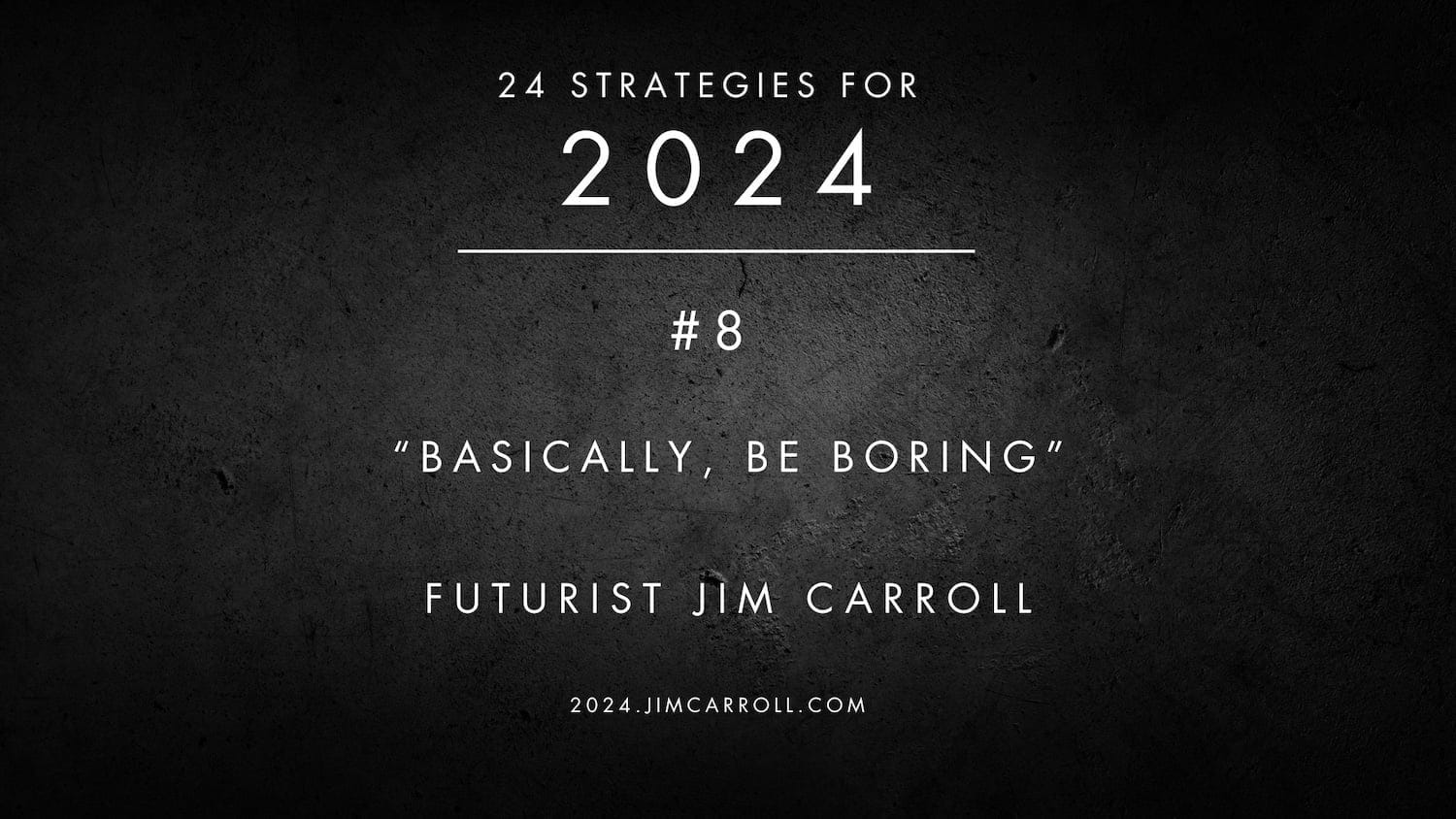
With that in mind, let me walk you through a series of slides I used yesterday.
First, I like to explain that Innovation can be considered in two ways - the invention of cool new stuff (that's exciting!), or the 'boring' stuff of introducing new ideas, new ways of working, and new ways of doing things.
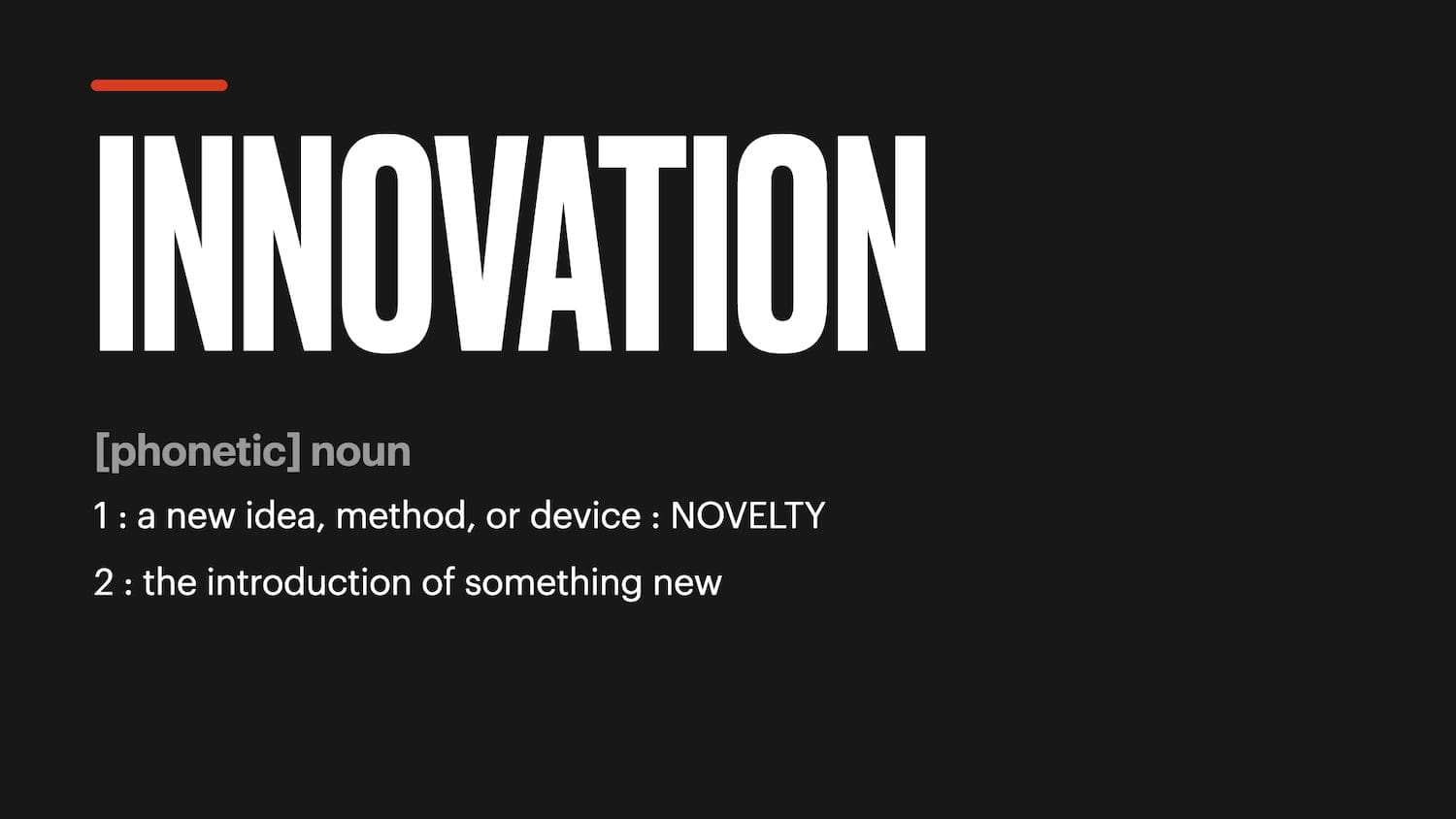
What matters right now is the 'boring' stuff - thinking strategically.
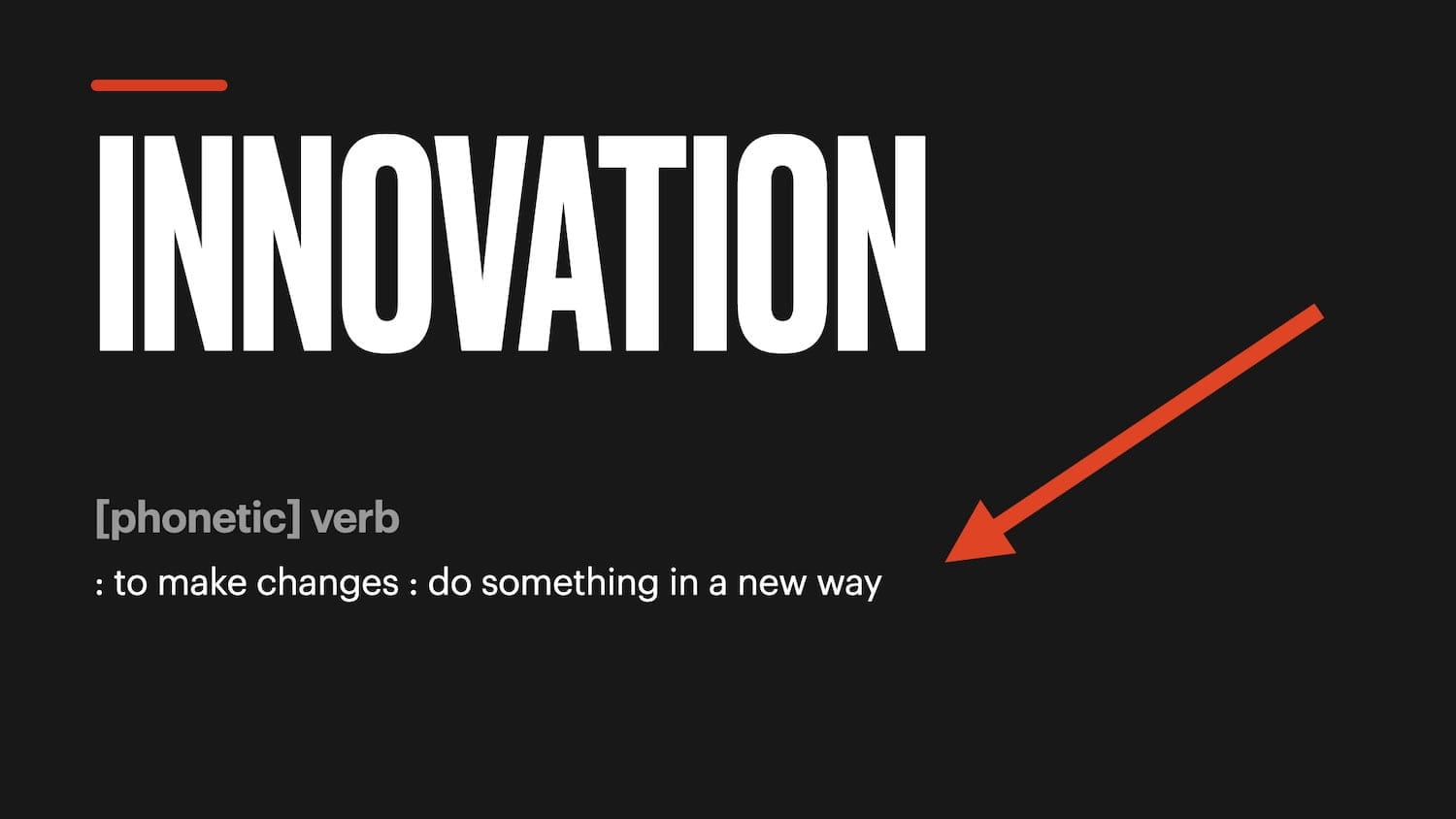
All of this goes back to an appearance years ago when I was on CNBC - observing that innovation is so much more than just the development and introduction of new products. Often, it's just basically boring business ideas.
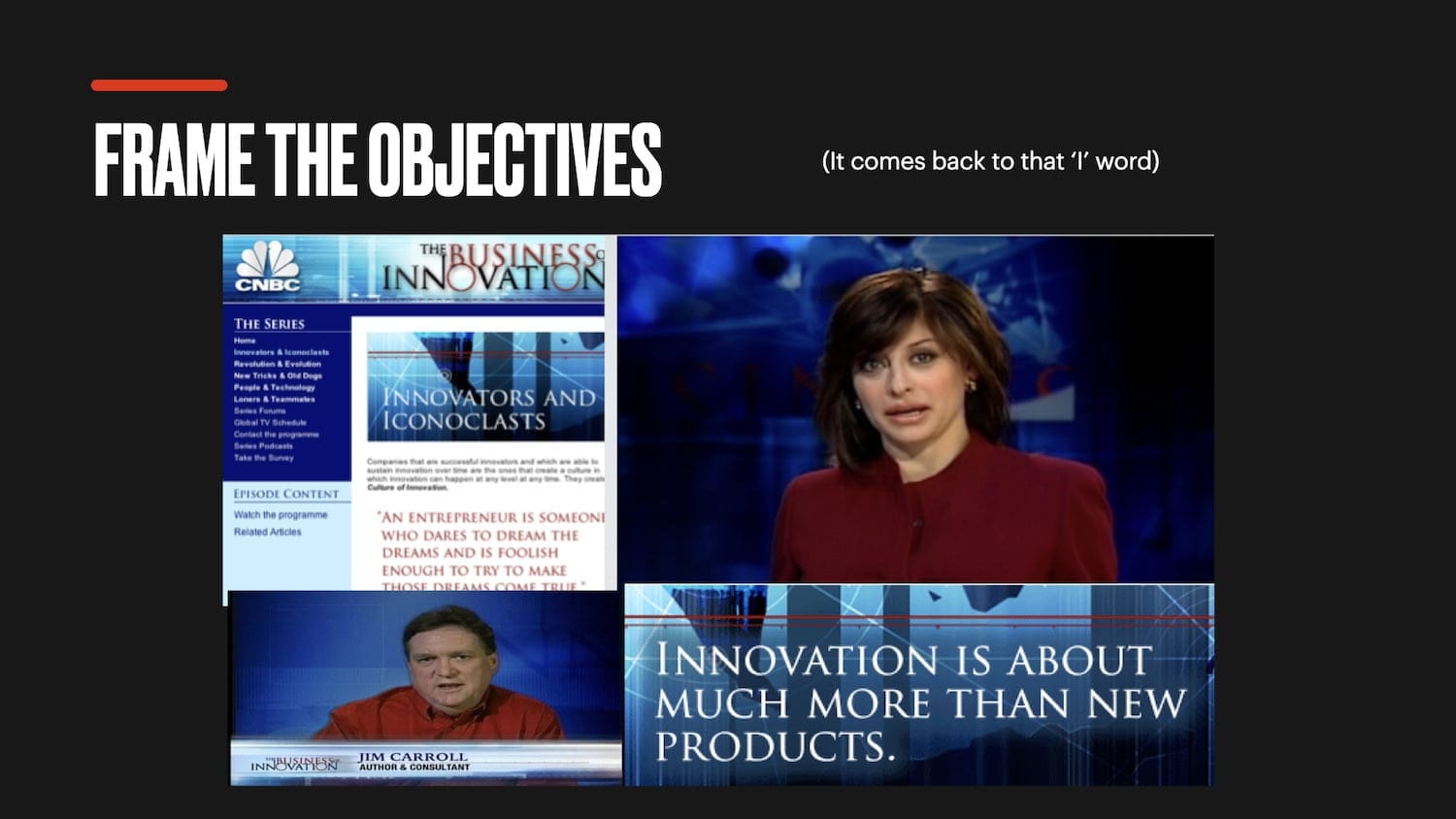
What is that boring stuff? For close to 40 years, I've been stressing that any innovation strategy must fit into one of four key strategies: how can we use this new idea or 'thing' to help us run the business better, grow the business, transform the business, or maybe help us invent a new business.
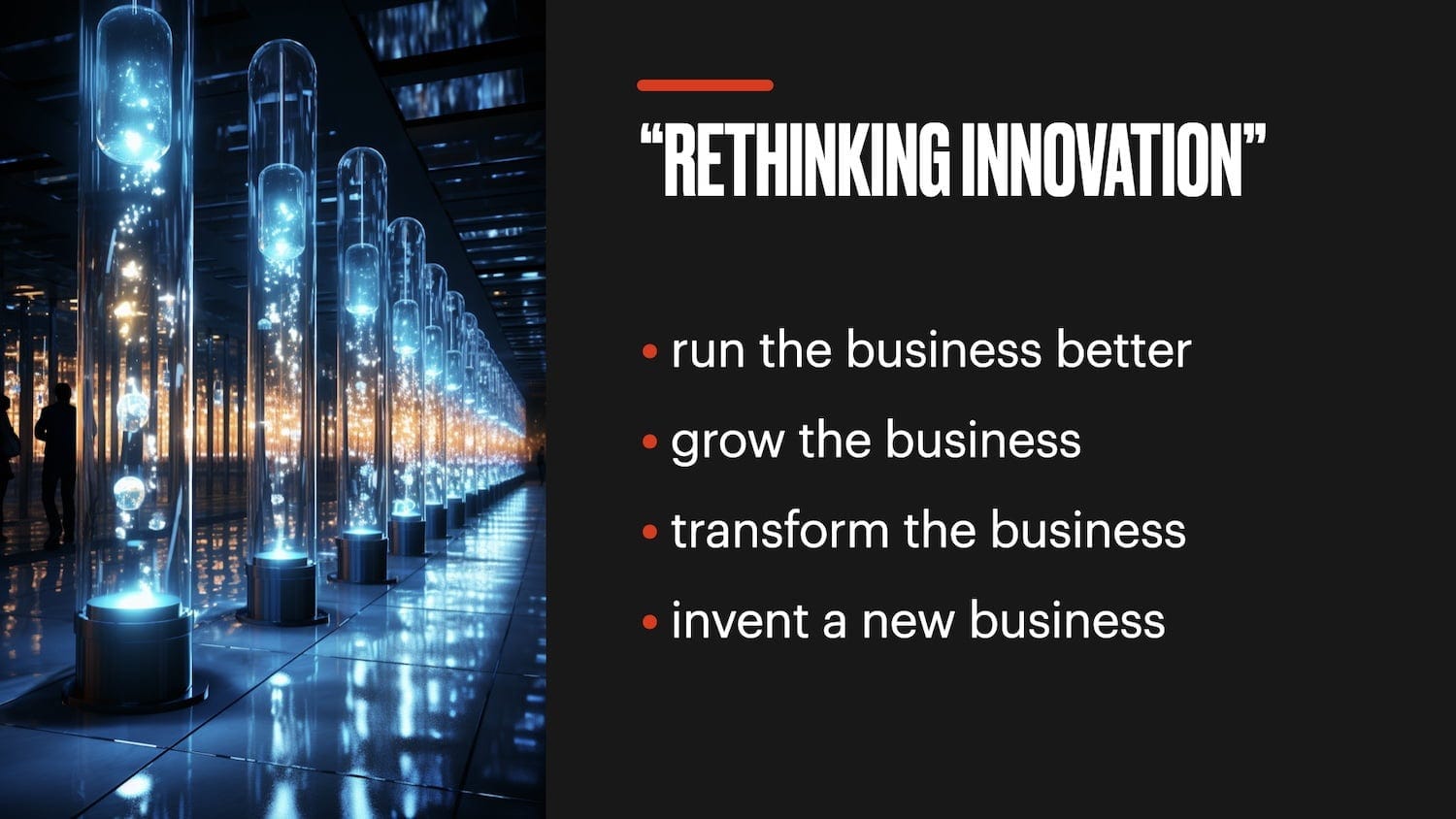
If a technology or idea doesn't fit one of those boxes, then it shouldn't be pursued. What is happening right now is that many companies and individuals are chasing corporate AI projects without really thinking through this strategic purpose, and that's where things go off the rails. They are too focused on the hype, the excitement, and the exciting stuff.
They've forgotten that boring is better.
Running the business better? Right now, there are a lot of strategic opportunities with AI, such as building custom AI-based support bots to answer customer service questions or let them search product manuals; streamlining day-to-day workflow to shave costs and introduce efficiency, or implementing a private corporate ChatGPT-like system for internal knowledge access. There are many other such activities already in place in many industries; for example, in the insurance industry, there is a lot of AI-based fraud detection happening.
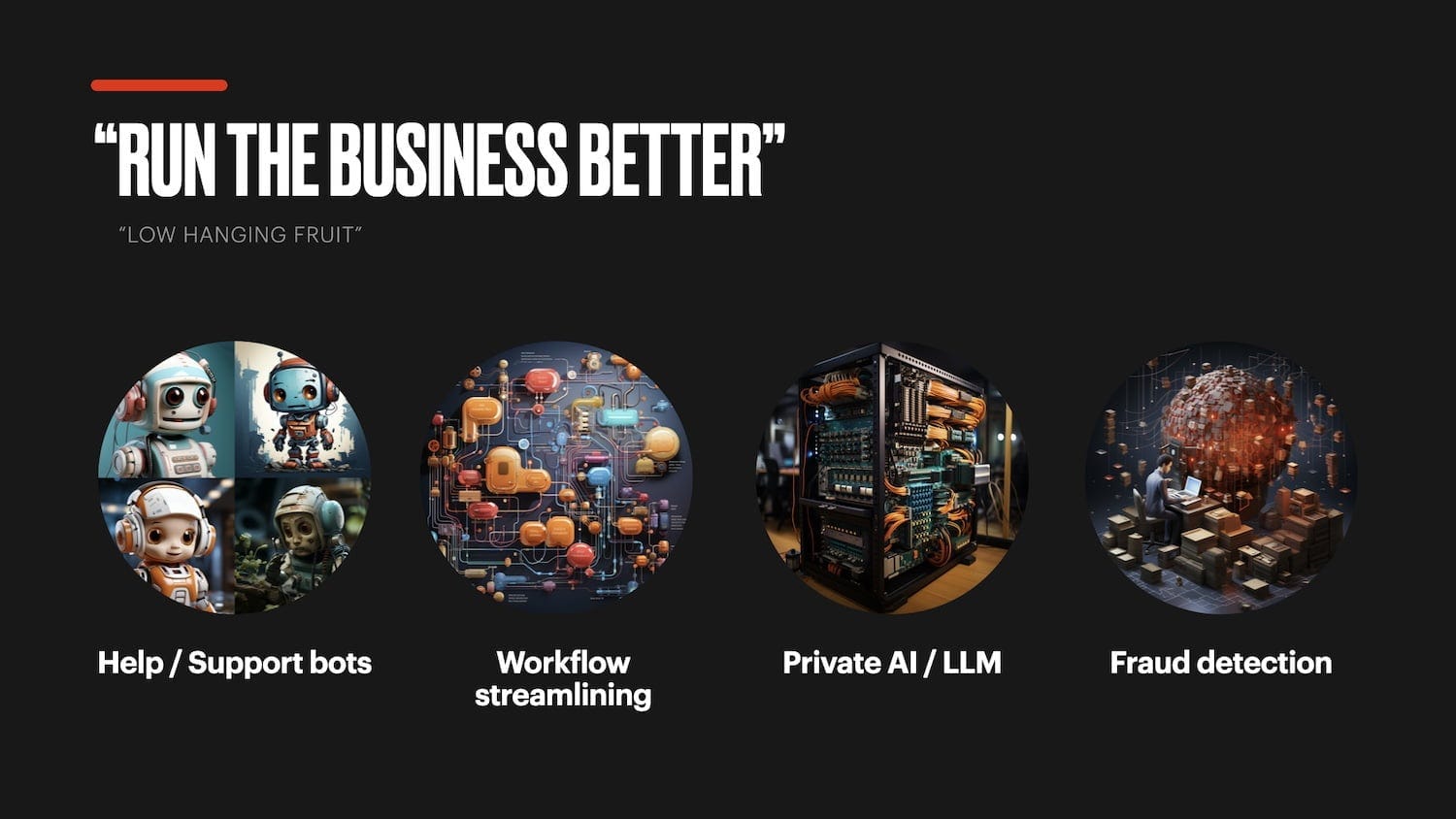
Growing the business? This involves the analytical and data-mining capabilities of AI, with such things as insight into sales trends and customer activities and sentiments. To a degree, these strategic opportunities have been available to us for quite some time in the guise of 'big data,' and really won't go anywhere unless you've got easy access to the data in the first place. For many organizations, that is a project in and of itself.
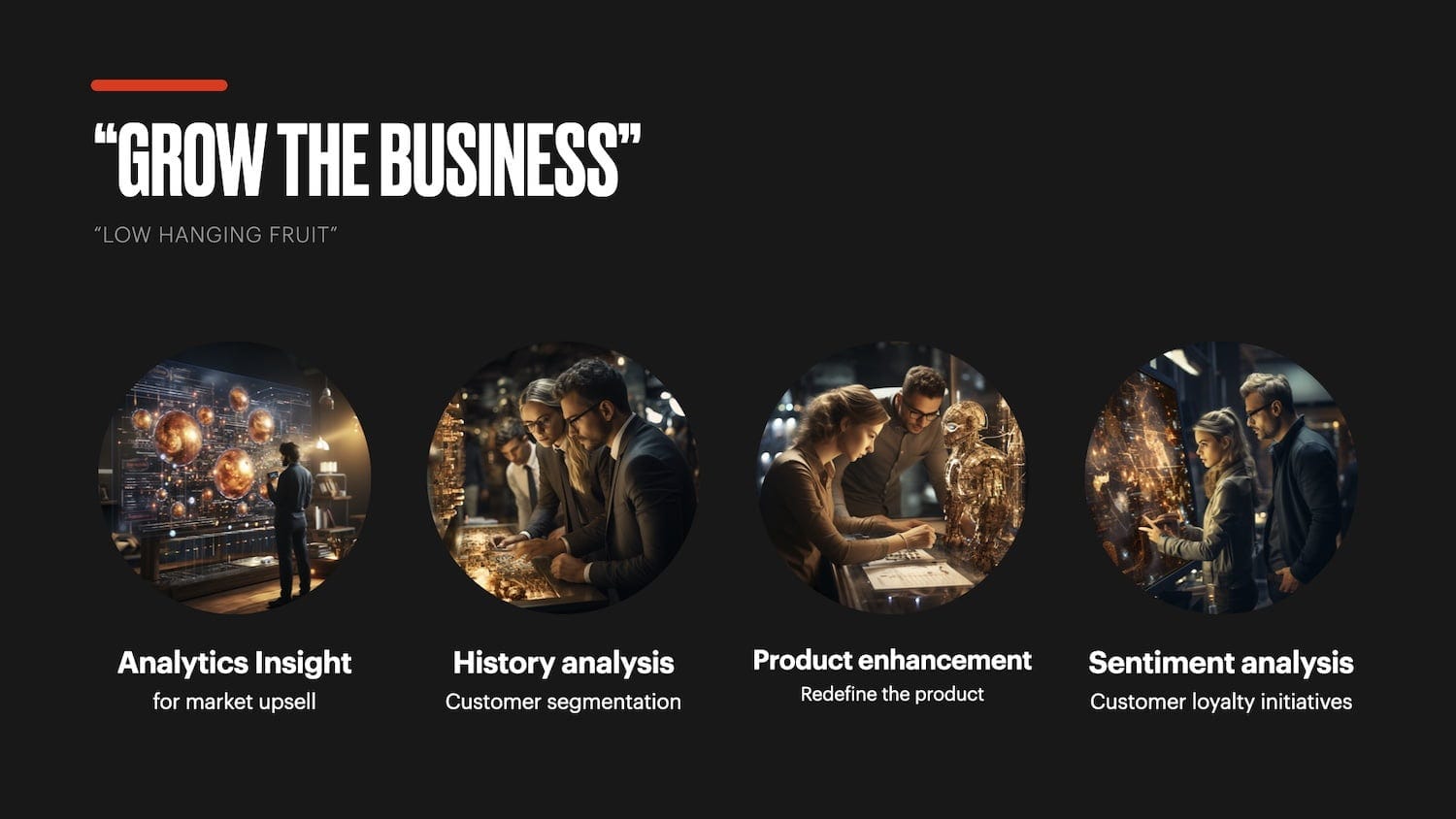
The potentially exciting stuff comes with transforming the business - how can we embed AI in an existing product to redefine its function, purpose, role, and value? I spoke about that yesterday in the context of the idea of a 'smart battery'.' Basically, a device that is fundamentally changed by giving information about its operation, health, performance, and more - exactly like my Tesla does. This can include building in 'real-time prognostic diagnostics' - that's a mouthful, but it involves building into a product the AI-based technology that will predict when it is going to break down, thereby giving the product more overall value. It might involve embedding AI into a personal medical device to let it take on a new and exciting role in personal healthcare. All of which can be pretty exciting to explore, but is far more complex to implement. (Implementation = boring!)
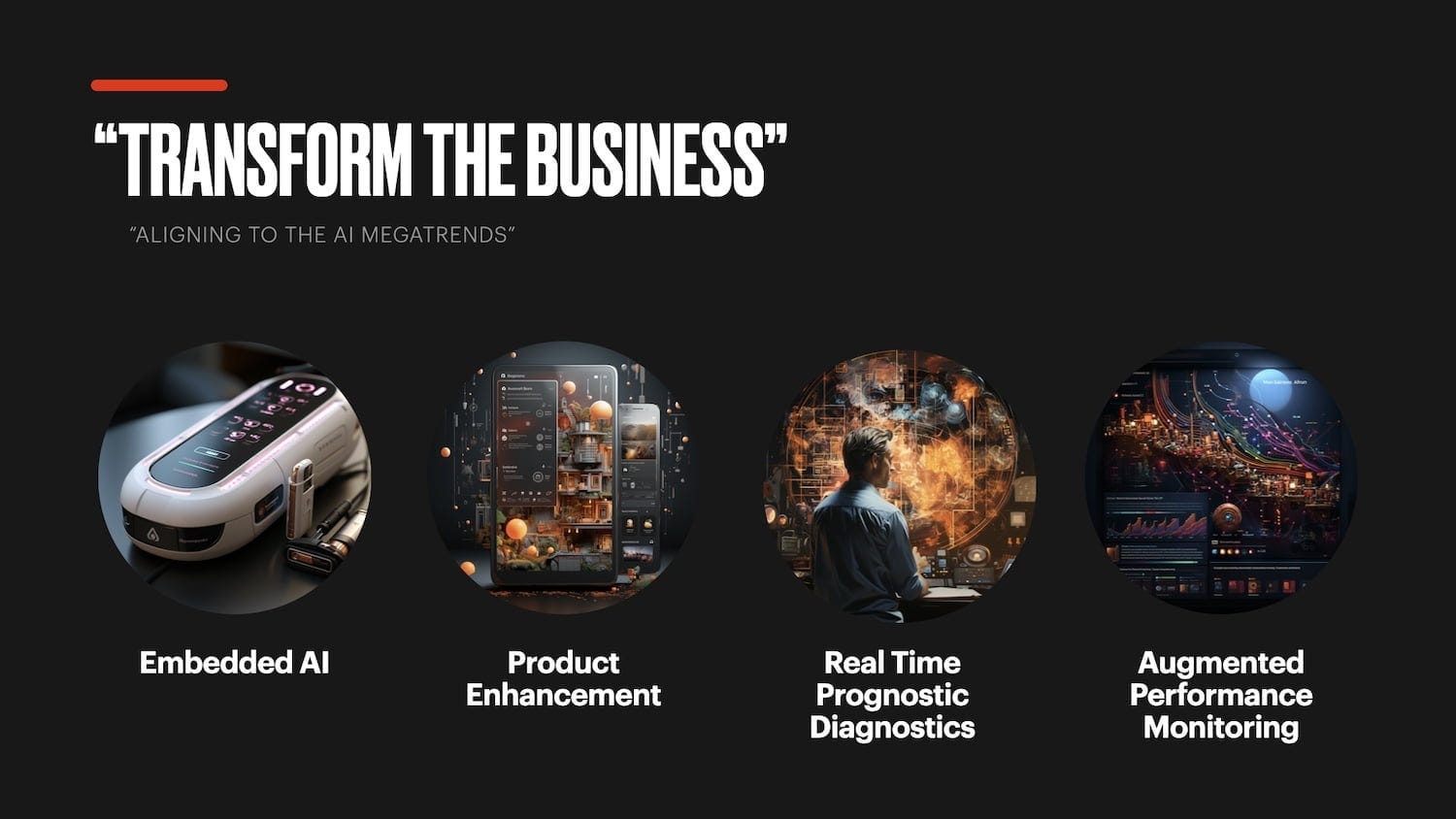
Finally, there is the opportunity for real disruption - inventing a new business or new product altogether based on AI technologies.
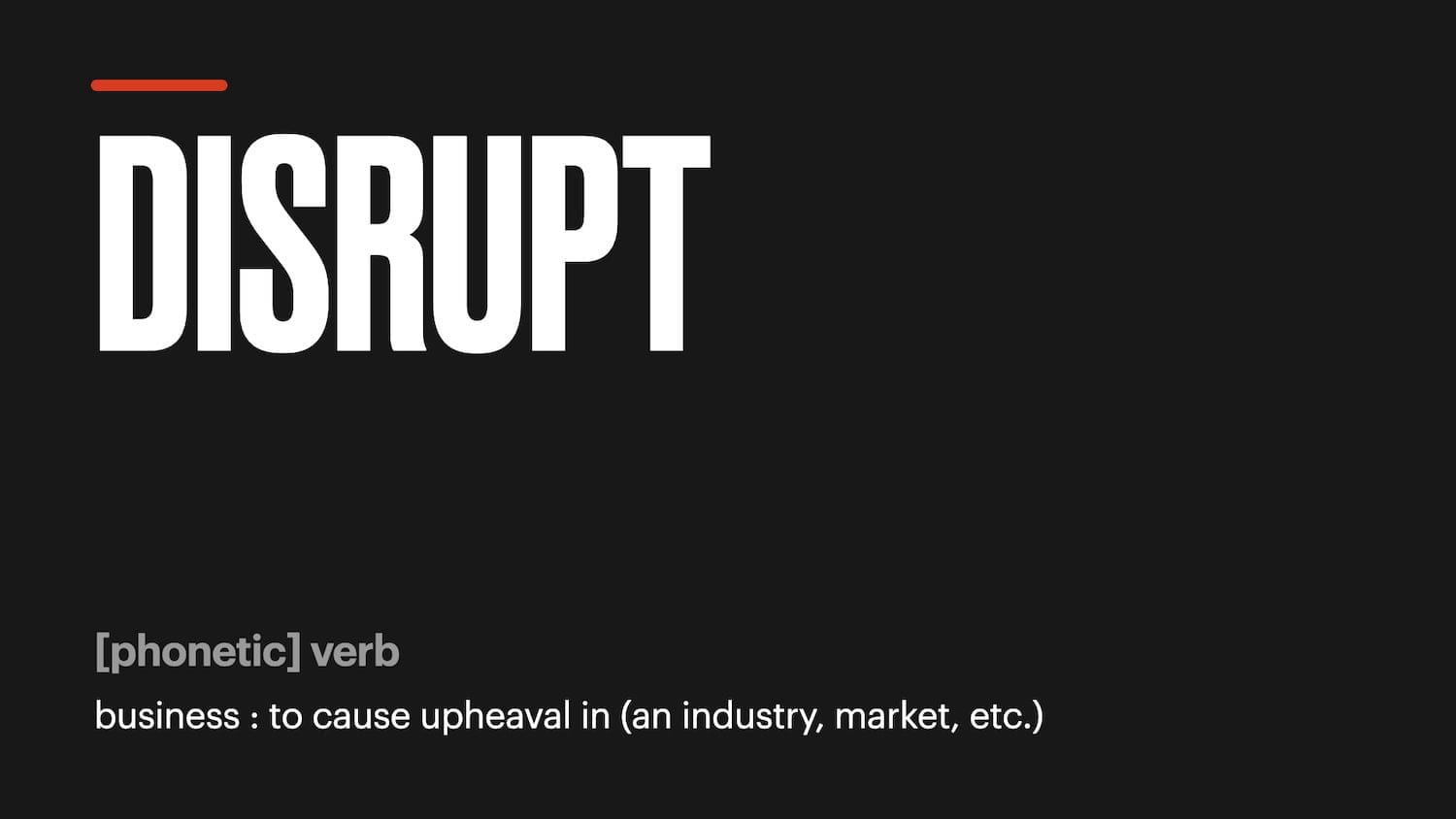
This is the exciting stuff that so many seem to be focused on today with the hype machine in overdrive.
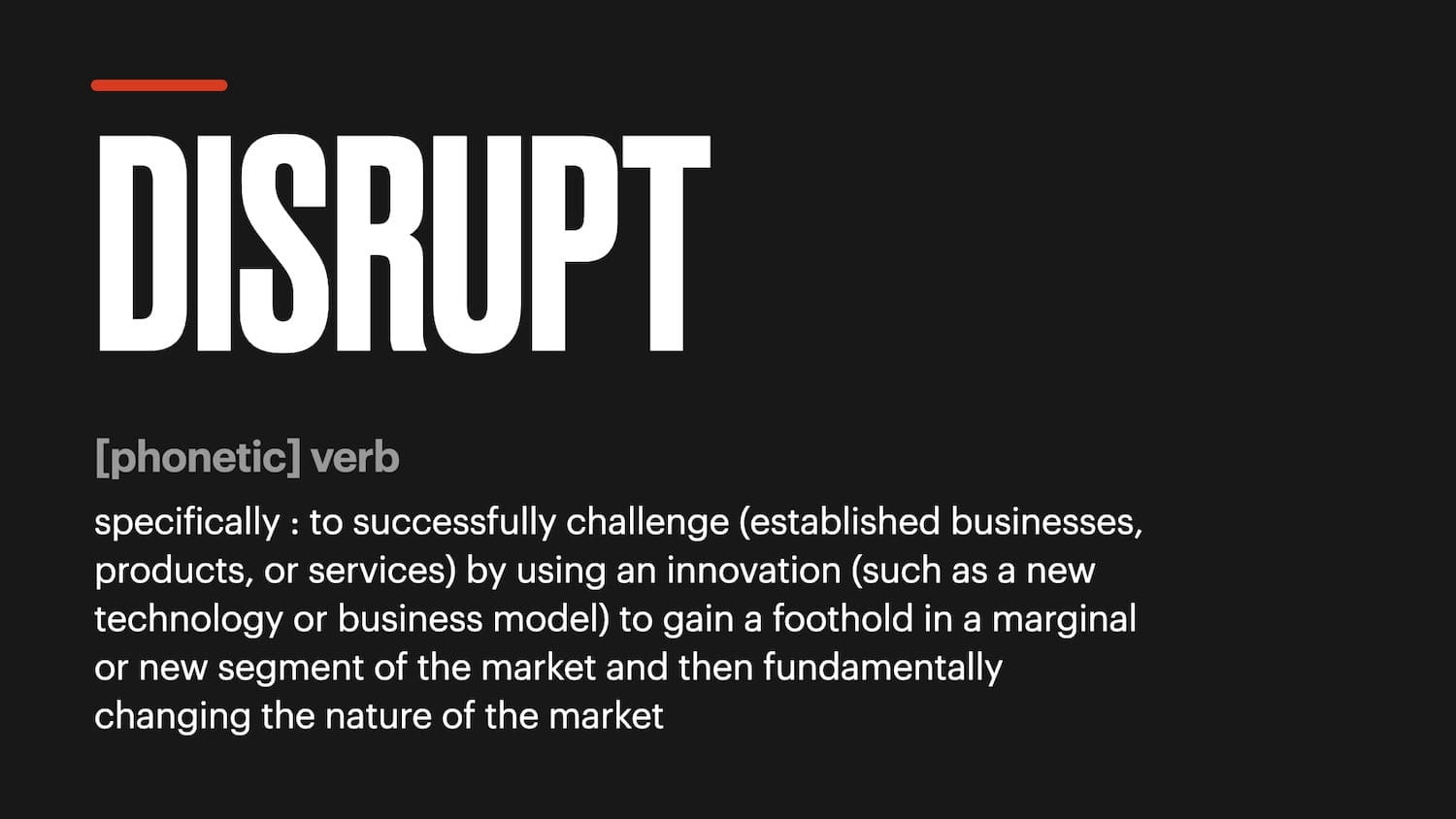
This thinking goes to the main point I often make about disruption. (Repeat after me..." Companies that do not yet exist...")
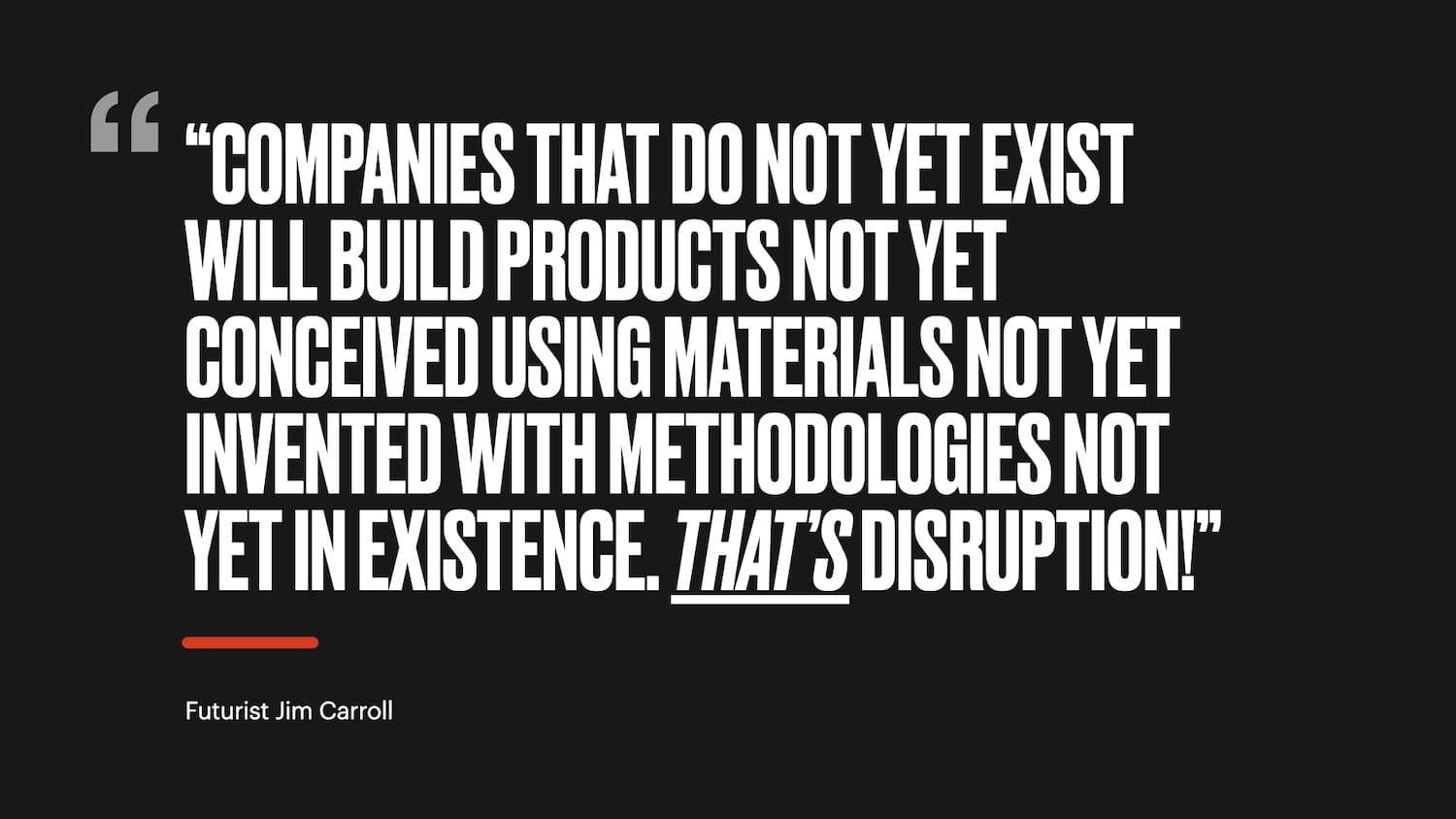
Boring. It's better. Because it means you are chasing strategy, not hype!
Sorry to be boring today!
Futurist Jim Carroll admits to getting bored easily, despite the context of this post.

